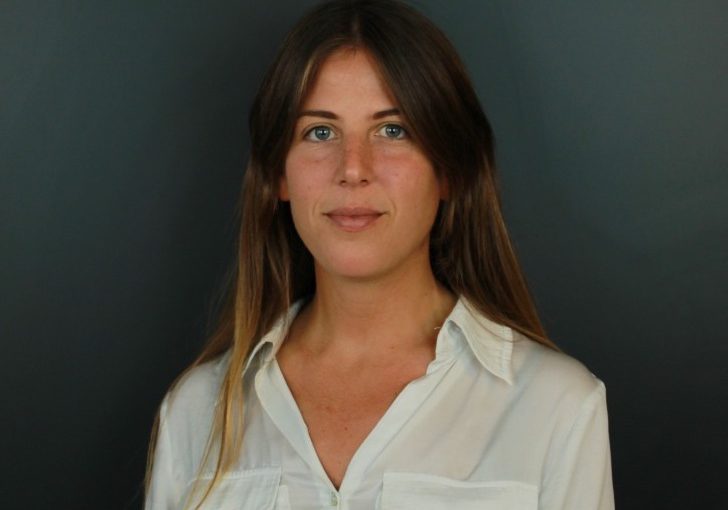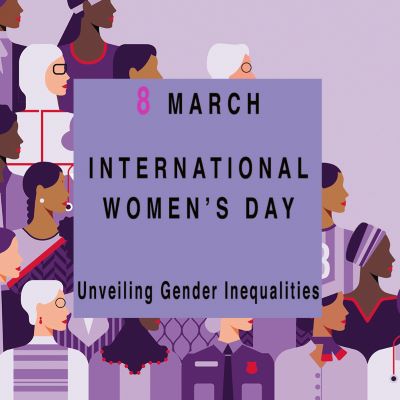In the dynamic landscape of gender equality, the respect for women’s rights has become a constant global endeavor. Within CREST, researchers and PhD candidates actively engage in understanding and studying gender inequalities, whether in the fields of economics or sociology. This article explores CREST’s research work, highlighting nuanced perspectives and innovative methodologies to study these societal and academic issues.
Sociological Perspectives
![LéaPessin[1]](https://crest.science/wp-content/uploads/2023/09/LeaPessin1.jpg)
In sociology, Léa Pessin‘s recent article focuses on gender inequalities in domestic tasks. Analyzing how couples in the United States navigate changes in women’s roles in the workforce while balancing career and family needs, Pessin’s research goes beyond the usual focus on specific aspects of work or family.
This innovative approach identifies that in 2019, only 14% of different-sex couples in the United States adopted an egalitarian division of labor, where each partner works full-time and shares domestic tasks equally. This result underscores that the time dedicated to domestic tasks, crucial for family functioning, is often invisible and undervalued, presenting a genuine social challenge for gender equality.
Joining CREST-GENES-ENSAE Paris in September 2023, Pessin’s work focuses on the unequal consequences of the gender revolution on women’s work and family outcomes, considering social class, race, and context. She recently received the prestigious ERC Starting Grant for the WeEqualize project, debuting in September 2024. WeEqualize adopts a historical and comparative approach to examine the implications of the gender revolution on social inequalities in work-family strategies among different-sex couples across countries and periods.
Find out about Léa Pessin’s recent publication: Gender Equality for Whom? The Changing College Education Gradients of the Division of Paid Work and Housework Among US Couples, 1968–2019
Economic Perspectives
In economics, Béatrice Cherrier, associate professor at CREST-CNRS, works on exploring the history of economics, highlights women economists. Demonstrating that the current recognition of women in the economic profession is not recent and has its roots in the 1970s, Cherrier’s research challenges the idea that, until recently, the prominent thinkers and practitioners in economics were exclusively men.
In collaboration with co-authors, her publication “Economic is not a Man’s Field: CSWEP and the First Gender Reckoning in Economics: 1971-1991” explores the history of gender recognition through the archives of the American Economic Association. Beyond supporting women economists, gender inequalities are a recurring theme at CREST among studies developed by PhD candidates in economics and sociology.

Doctoral contributions

Léa Dubreuil, in her third year of doctoral studies at CREST-GENES-IP Paris, specializes in labor economics and gender inequalities, with a particular focus on women’s behavior in the labor market following childbirth. Her work revolves around two specific projects related to gender inequalities:
With Bertrand Garbinti and Carole Bonnet, their research focuses on inequalities in the labor market between women and men after the birth of the first child. They observe a significant decline in wages and hours worked for women compared to men. The uniqueness of this project lies in the ability to examine what happens within a couple.
In collaboration with Marion Brouard, Léa’s project explores the reasons for the decrease in the number of hours worked by women after the birth of the first child. They examine how mothers’ preferences for personally caring for their children can explain the rate of part-time work among mothers and their behavior regarding family public policies.
Federica Meluzzi, a fourth-year doctoral student at CREST-GENES-IP Paris, also works on labor economics and public economics, with a focus on gender differences in the labor market. Specifically, her work addresses differences in job search behavior between the sexes, the influence of social norms, and the role of parental policies on equality within couples.
In an article, currently in the final stages and titled “The College Melting Pot: Peers, Culture and Women’s Job Search,” she presents large-scale evidence on the effects of the social environment, represented by university classmates, on women’s job search behavior and career choices.
Federica relies on administrative and survey data covering all university graduates in Italy, combined with quasi-random variations in gender norms among peers, measured by the local characteristics of the province of origin.
Her results indicate that exposure to classmates with a more egalitarian gender culture leads to significant increases in women’s labor supply, both through greater acceptance of full-time jobs and increases in their working hours. Analysis of original data on students’ beliefs reveals that the main mechanism at play is that of social learning.

Gender Inequality Discussion Group
CREST’s PhD candidates remain committed to highlighting gender inequalities and advocating for women’s rights. The “Gender, Family, and Sexuality” reading group, initiated by economics and sociology PhD candidates, promotes discussions on research articles, whether original or not.
With 26 participants (professors, PhD candidates, and research assistants), this interdisciplinary reading group facilitates exchanges on current gender-related topics, presenting innovative sociological and economic results and methodological tools.
While the developed research represents only a sample of the undertaken projects, it is crucial to emphasize that CREST’s research is not limited to isolated initiatives. Moreover, these studies rely on innovative tools and approaches. These innovative methodologies (new data, new data analysis techniques) form the foundation for significant advancements in both societal and academic domains, such as advancing women’s rights by deciphering gender inequalities.
CREST approaches gender inequalities with a multidisciplinary perspective. These efforts contribute not only to shedding light on crucial questions in fields such as economics and sociology but also actively shaping the landscape of gender inequality research.

